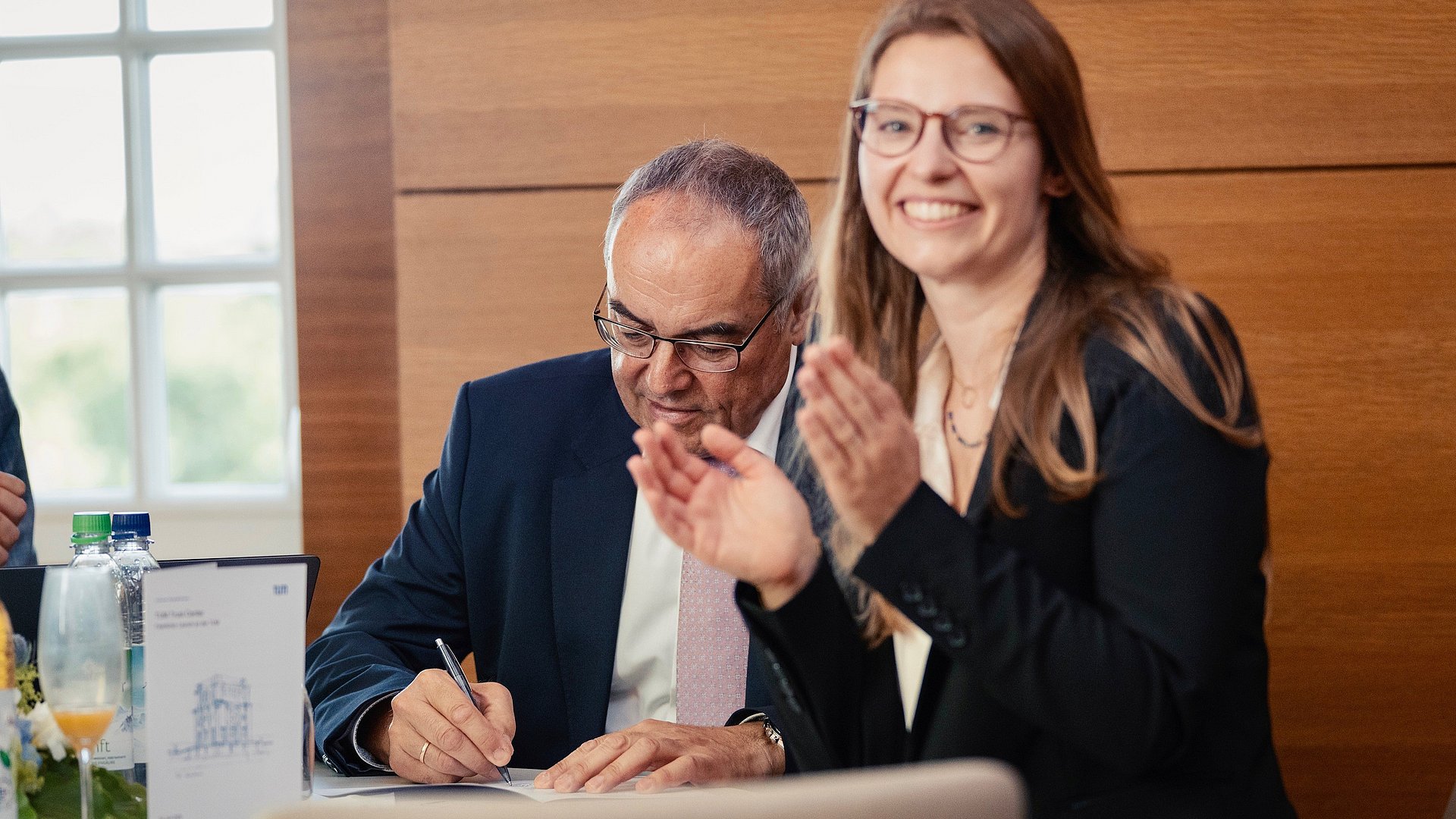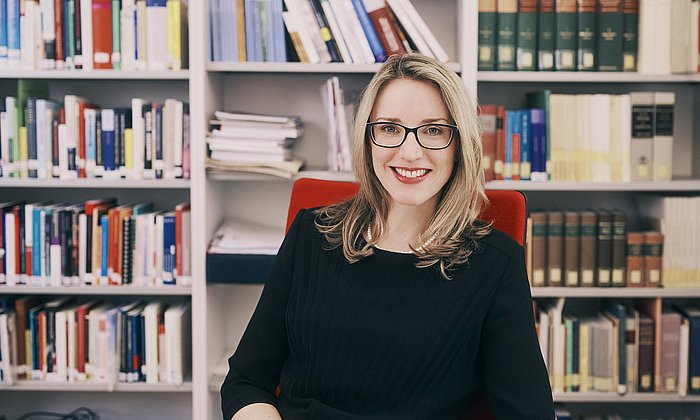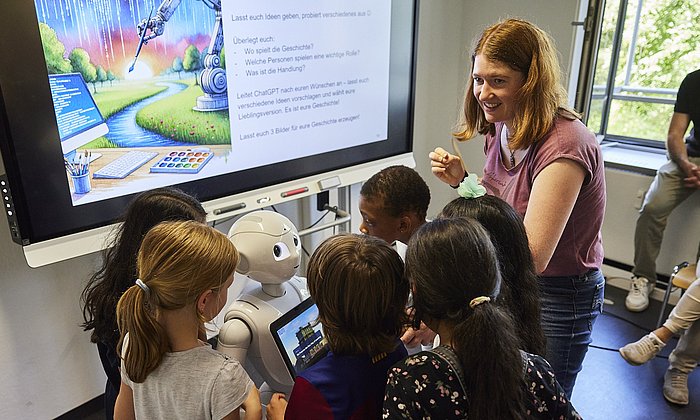TUM Trust Center
Platform for digital seals and signatures

In the past, the Graduation Office and Academic Records Department at the TUM Center for Study and Teaching had to print, sign, and mail around 7,000 certificates every semester. Today, this process is easier and more secure. For example, degree certificates are provided with an electronic seal and are available online immediately. The team can save many hours of work. Franziska Bokhorst, Head of the Graduation Office, says that well over half a million documents have now been automatically sealed. Degree certificates, course certificates, and affidavits stating that you wrote your thesis independently can all be digitally sealed, signed, and sent in a tamper-proof manner.
This saves a lot of time, especially for documents requiring the approval of numerous parties in different locations, such as contracts for third-party funded projects. It does so via TUM's own platform, rather than standard software, which is often used by companies and universities. First, such solutions are expensive, given the large volume of documents handled by TUM. Second, the data is usually processed on US servers.
Developed by TUM researchers
The TUM Trust Center, on the other hand, is an in-house — and therefore technically sovereign — solution developed by Stefan Genchev and Nina Schwanke. They are both pursuing their doctorates Prof. Georg Carle's Chair of Network Architectures and Network Services at the School of Computation, Information and Technology. "This is a real bridge from research to practice," says Alexander Braun, vice president of digitalization and IT systems. "It's also a good example of how our research can create tailor-made solutions for the administration and relieve its workload." Schwanke is continuing this successful collaboration. In addition to her research, she is active in IT management at TUM.
"The Trust Center is a milestone in TUM's digitalization concept," says Chancellor Albert Berger. According to the head of the TUM administration, digital forms are a huge help, especially for documents involving several teams where responsibilities must be clearly visible.
There are two main options when it comes to signatures: The "advanced" signature is inexpensive and sufficient for most TUM processes. The "qualified" signature is particularly secure because the necessary key data is specially secured. "These signatures are protected against attacks by special hardware, making them more secure than a signature on paper in a filing cabinet," says Nina Schwanke. This is why the qualified version is equivalent to a handwritten signature under EU law. All members of TUM with an online-capable ID card can create a qualified signature within seconds.
An additional benefit is that the Trust Center makes it easier for many employees to work from home. They can send and edit documents from home without having to come to the office.
- You can access the Trust Center with your TUM account
- Information Technology at TUM
Technical University of Munich
Corporate Communications Center
- Jeanne Rubner
- jeanne.rubner@tum.de
- presse@tum.de
- Teamwebsite
Contacts to this article:
Nina Schwanke
schwanke(at)net.in.tum.de
Chair of Network Architectures and Network Services
TUM School of Computation, Information and Technology


